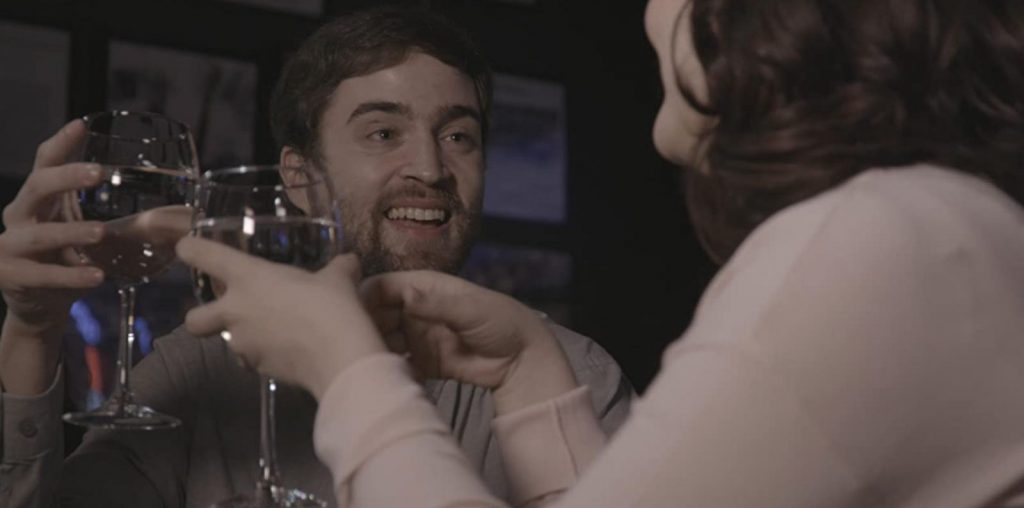
There’s nothing like a film to make you feel guilty about being an ungrateful child, friend, or lover. The better the film, the guiltier you feel. Corey Fortuné’s film “Employee Dang” makes you wonder if you’ve been unappreciative of your parents’ sacrifices. The film takes place in and around a Vietnamese-owned dry cleaners. “Employee Dang” is a twenty-four glimpse into the life of Dang (Bert Matias), who manages Win’s Cleaning Depot. The emotional climate in the film is rich and is the result of good performances from the actors and the simplicity of the story.
Dang is father to Kim (Tuyet Bui) and surrogate father to Win Jr. (Joseph Trinh). Win’s Cleaning Depot is well-known for its memorial t-shirts, or dead-man t-shirts as they’ve been called by gangs that want their slain members honored. The specific drama in this film pertains to an order of these shirts put in by thugs, $2,000, Kim’s sneaking out of the store at the same time a sum of money goes missing, and the anticipation that “something is about to happen.”
Something does happen, but “Employee Dang” is more of an exploration of character than action-driven plot. Dang is trying to mend his crumbling relationship with a daughter who’s had run-ins with local juvenile services. Dang is hardworking, respected, and nurturing (it’s nice to watch him play basketball with neighborhood kids). He’s a good person who, as the film suggests, has had to deal with loss. He’s literally lost his wife and doesn’t want the same thing to happen with his daughter. Bert Matias and Tuyet Bui deliver excellent performances, recreating the dynamic between a concerned father and a semi-aloof, too-young-to-understand daughter.
Fortuné captures this opposition especially well in one of the three horizontal split-screens he incorporates into the film. Kim is on the top of the screen and she’s looking at a picture of her mother. Dang is on the bottom of the screen, examining a t-shirt order form. As each character inspects their respective photo and paper, you feel their minds coming to a realization of some kind. Fortuné tells the story primarily from Dang’s perspective, but as the ending credits roll, you’ll realize that you’ve been in Kim’s position. Enter the guilt trip.
